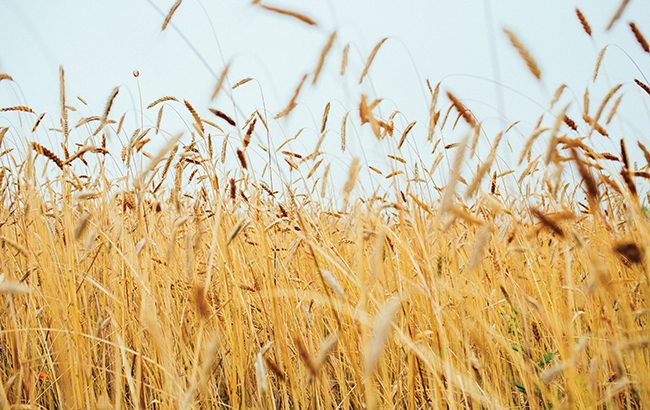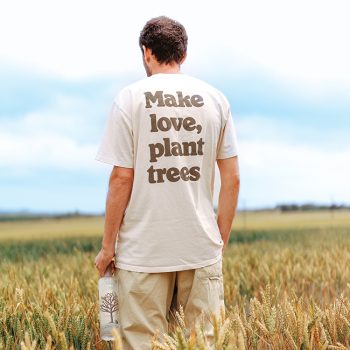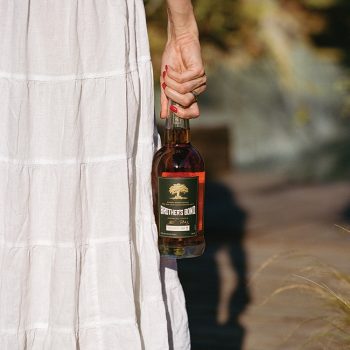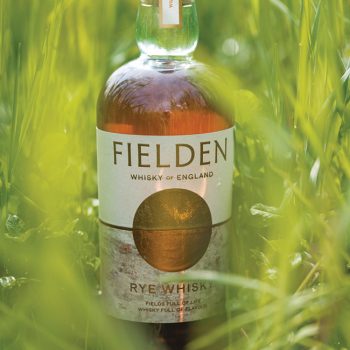How are spirits brands embracing regenerative farming?
By Claire DoddRegenerative farming eschews the use of chemicals, preferring to employ heritage grains, and methods to help the plants grow naturally. Here are the spirits producers hoping to change the way the sector grows its crops.

*This feature was originally published in the December 2024 issue of The Spirits Business magazine.
“Drinks and sustainability? It’s always a bit behind food… quite a lot behind food,” says Ed Faulkner, co-founder of Sapling Spirits. “People have been talking about sustainability in food for a long time [but] drinks supply chains are often a lot more opaque. People don’t really know the agricultural processes behind the drinks they’re drinking. If you don’t know what you’re consuming, it’s hard to care about it.”

Sometimes to do something new you need to do something old. As drinks brands look to offer consumers a good news story and catch up when it comes to lessening their impact on the environment, it all comes back to farming. Regenerative farming to be exact.
This is a rejection of industrial farming methods and a return to practices that allow the land and nature to recover. Aiming to restore and nourish the land, it improves the environment, helping the land, the soil, water, and nutrients to regenerate rather than depleting them. Supporters claim the practice can take large amounts of carbon out of the atmosphere, allow wildlife and biodiversity to thrive, and result in healthier produce, also making the landscape more resilient to drought or flooding.
No definition
That’s as exact as we can be. Currently, there is no agreed universal definition of it, or its methods. Yet, it’s something an increasing number of drinks brands are turning to to produce their spirits.
“One of the most interesting things, and one of the most problematic things, is that the regenerative farming movement now is where organic was in the 1980s,” says Faulkner. “There’s a huge variation of techniques, and no one single accreditation.” Sapling – who describes itself as the UK’s first climate-positive spirits brand – is one of a number of producers that have recently launched an entirely regenerative product.
Regenerative Vodka is a partnership with chef and farmer Julius Roberts. It uses wheat farmed without insecticides and fungicides, only natural manure from chickens as fertiliser, and practices rotational grazing on pastures that contain a diverse mix of wild flowers and herbs, or a herbal ley. Substantially higher priced than its core range, it retails for £55 (US$70) for 700ml. In comparison, its Climate Positive Vodka – whereby for every bottle sold, a tree is planted – is £34 (US$43).
“There’s exactly the same amount of carbon in the world as there was 1,000 years ago, 2,000 years ago. It just all used to be in the soils, in the sea, and in the forests,” says Faulkner. “Now a huge amount of it is in the atmosphere, and that’s the problem. Europe used to hold as much carbon as the Amazon rainforest, but now it doesn’t because its farmlands are completely eroded. Regenerative farming is the way of kind of rebalancing. Yes, it’s the right thing to do. But it’s also very expensive. That’s why the adoption has been a bit slower. We hope that, alongside all of the other small producers who are starting to come through and release regenerative products, it is the beginning of a much larger regenerative farming movement.”
In the UK, a lack of subsidies to offset the higher costs of regenerative farming – such as leaving fields to recover – are keeping costs high, adds Faulkner. It means that, for now, regenerative products are appearing in some ranges as one-offs, rather than being replicated across a portfolio.

Bourbon brand Brother’s Bond, founded by The Vampire Diaries actors Ian Somerhalder and Paul Wesley, launched its first product in 2021. In summer 2024 it teamed up with WhistlePig Whiskey to support regenerative agriculture in the US, launching Brother’s Bond Regenerative Grain Straight Bourbon. It is made with regenerative grain from North Carolina, distilled and aged within 20 miles of the fields at the Southern Distilling Company. A second release is planned for the second quarter of next year. Somerhalder says US farmers can save US$400 per acre through regenerative methods, which require less intervention, while capturing substantial amounts of carbon, building biodiversity, reducing pollution, providing much-needed income for agricultural communities. Plus he says, for the next wave of consumers, Gen Z, sustainable commitments are not a nice-to-have, but a must-do.
Reverse climate change
The brand has partnered with non-profit organisation Kiss the Ground and Regenerate America, which seeks to reverse climate change through regenerative agriculture and transition 100 million acres (40.4m hectares) of US land to regenerative use. It is estimated there are 81m ha of grain in the States. “The alcohol industry is not doing enough,” says Somerhalder. “Our food system has ultimately been hijacked by agrochemical companies. We have the ability to literally balance our climate, where we can grow better food. And the spirits industry – wine, beer and spirits – has an unbelievable ability to be leaders in this space because of their scale. We’re working to build the world’s first truly regenerative spirits company,” he says. “To me, it is a race.”
For Scottish distillery Arbikie, regenerative farming has meant seeking out alternative crops. It launched Nàdar Gin in 2021, described as the ‘world’s first climate-positive gin’, following a five-year research project. It uses peas to make its base spirit because they require no nitrogen fertiliser, resulting in a carbon footprint of -1.54kg CO2e per 700ml bottle.
English whisky brand Fielden – previously the Oxford Artisan Distillery – has focused on heritage grains, which it defines as those from pre-industrial hybridisation, before the use of chemicals to produce high yields.
“The journey has been completely experimental,” says Dave Smith, CEO. Its range includes core product Rye Whisky, an annual harvest product using rye from a specific year, and Hedgerow, inspired by the complexity and diversity of an English hedgerow. “Internally, we have this phrase called ‘no chem regen’. Wild grains, wild farming, that could be another way of putting it,” he explains.
He adds: “We use grains that grow tall and with deep stems, which means that they sequester carbon. We plant into clover, which we think fixes the nitrogen in the ground, and suppresses the weeds. The idea is that we plant the clover, we plant in the grain, and if we get it right, we shut the gate, we walk away, and we come back and harvest. In theory, our fields should be very kind to nature.”
Harvests, and therefore taste profiles, can vary, he adds, noting that for its Rye Whisky, it aims to achieve a flavour that sits between two points on a scale, rather than the exact profile each year. “The character very much belongs to field. We’re an English rye whisky – we don’t taste like American rye, for sure. We’re quite unique tasting. But can I scientifically tell you that that terroir delivered that taste? No. We’re not that scientific, and we don’t pretend to be. We just know that we make great whisky from kind farming.”
As Fielden works to scale up the business following backing from Diageo’s Distill Ventures, it has had to use certified organic grain to blend with its heritage grains. When bottled, that mash bill will be transparently shared with consumers. But it raises a good question. Is regenerative farming scalable? These practices remain an exception to the norm, and take time to establish.

Testing the waters
But large producers are also looking into regenerative agriculture, testing the waters for how it can affect their broad product portfolios. In November 2023, Maker’s Mark announced its first Certified Regenified barrel of Maker’s Mark whiskey. Billed as a ‘pursuit of flavour through nature’, the brand worked with the Kentucky farms supplying its corn and red winter wheat to secure certification from Regenified, one of many third-party verification companies.
In October 2023, Diageo announced two regenerative agriculture programmes that aim to drive enhanced biodiversity, improved water stewardship, carbon reduction, and better soil health management in Scotland and Mexico. Agriculture makes up one-third of Diageo’s supply chain emissions.
Pernod Ricard also claims to be working in this space by sourcing more than 100 ingredients including wheat, barley, cane, beet, grapes and agave, from around 60 countries, and more than 380,000 ha of land.
Recognising that continued production – especially in light of climate change – relies on well-functioning ecosystems, it is mapping “priority terroirs,” or agricultural sources with pressing sustainability risks and opportunities.
“This is for the long run, these are long-term discussions with farmers,” says Morgane Yvergniaux, global head of sustainable terroirs at Pernod Ricard, who adds that alongside working with producers to achieve regenerative accreditations, and assess its impact on climate, biodiversity, water, soil, it is looking at the impact on people and communities.
It aims for 100% of its key raw materials to be eventually certified sustainable. All Pernod Ricard-owned vineyards have already implemented regenerative practices. Pilot projects are under way in other terroirs to determine which stipulations will go into future supplier contracts.
“In some cases we use essential raw materials, staple food, to produce non-essential products,” adds Yvergniaux. “We compete for land, and we already know that we compete for water in some areas. So if we do nothing, of course, we have a big risk for the business. And this is exactly the reason why it’s urgent to act now.”
Communicating that to consumers, however, is some way down the road. “It is still too blurry for newcomers in this area,” adds Yvergniaux. “So we don’t have a clear communication on the product.”
Though the methods remain experimental, it’s clear that for a substantial and lasting impact it requires the industry to band together. Pernod says it is already working or in discussions with companies such as Heineken, Danone, and others to collaborate on crop rotation.
“We hope that, alongside all of the other small producers who are starting to come through and release regenerative products, it is the beginning of a much larger regenerative farming movement,” adds Sapling’s Faulkner, noting demand and pressure on governments are key to reducing costs and boosting consumer awareness.
“The most important thing is that as many people adopt regenerative practices as possible,” adds Fielden’s Smith. “We now have an open-source grain supply that we can offer other people, other whisky businesses, to access. We really want to set an example. This is an inclusive movement, not an exclusive one.”
Is the industry doing enough to ensure it is using water responsibly and protecting/preserving water sources?
Radosław Lewandowski – group ESG manager, Stock Spirits Group
“Stock Spirits’ sustainability strategy focuses on the responsible use of water resources and improving water efficiency in our operations. We are committed to reducing water use in production by 10% per litre of finished product by 2030. In 2023, the group used an average of 3.3 litres of water per litre of finished product. We limit water consumption by using technology, monitoring, and maintenance of the installations to optimise our processes.
For example, in a closed-loop system in our rectification installation at the Lublin plant in Poland, water circulates in two loops without producing any waste. This significantly reduces water consumption within the plant. An additional factor to consider is the climate crisis, with periods of draughts and torrential rains that may negatively impact water resources the industry uses for production.”
Tanya Clarke – CEO, The Lost Explorer
“Our commitment to sustainability is our guiding principle and core value. Sustainability isn’t about buzzwords or flashy campaigns – it’s about always striving to improve our responsible practices. One standout initiative is our partnership with Isla Urbana, through which we support 16 rainwater harvesting systems in remote regions of Oaxaca, providing clean water to communities. Furthering our commitment, we’ve teamed up with Isla Urbana USA and Voice for Nature on a ground-breaking project in Zapopan, Jalisco: a rainwater harvesting system that will conserve 240,000 litres of water annually. It also aims to cultivate water stewardship, enhancing local skills and promoting sustainable practices.”
Related news
Alkatera simplifies sustainability for drinks sector
